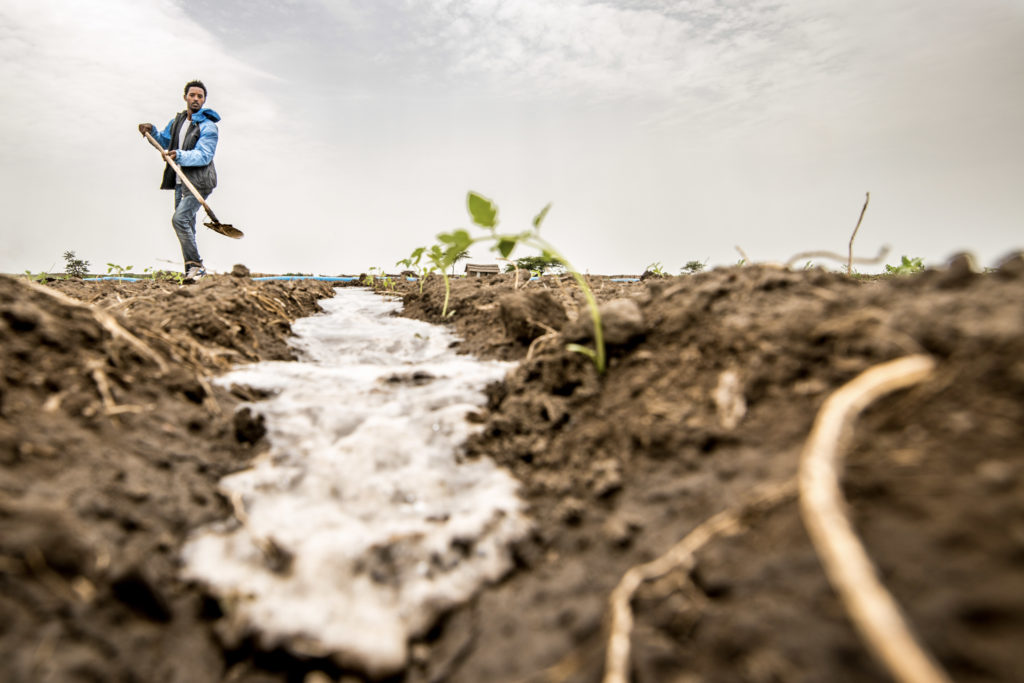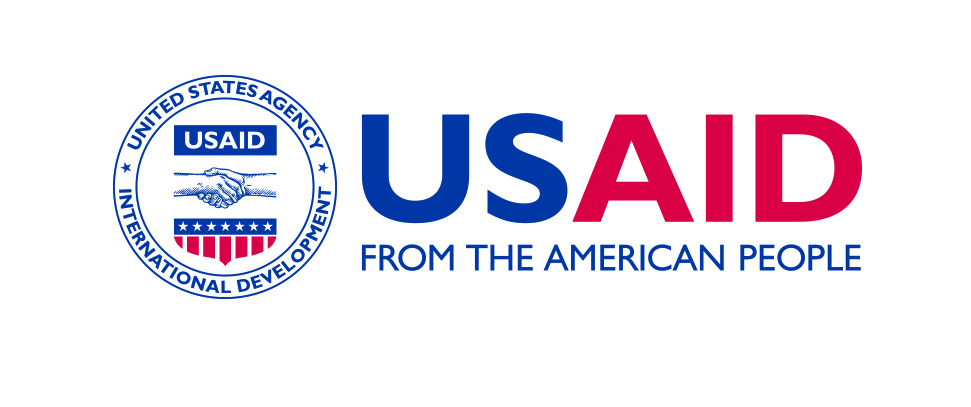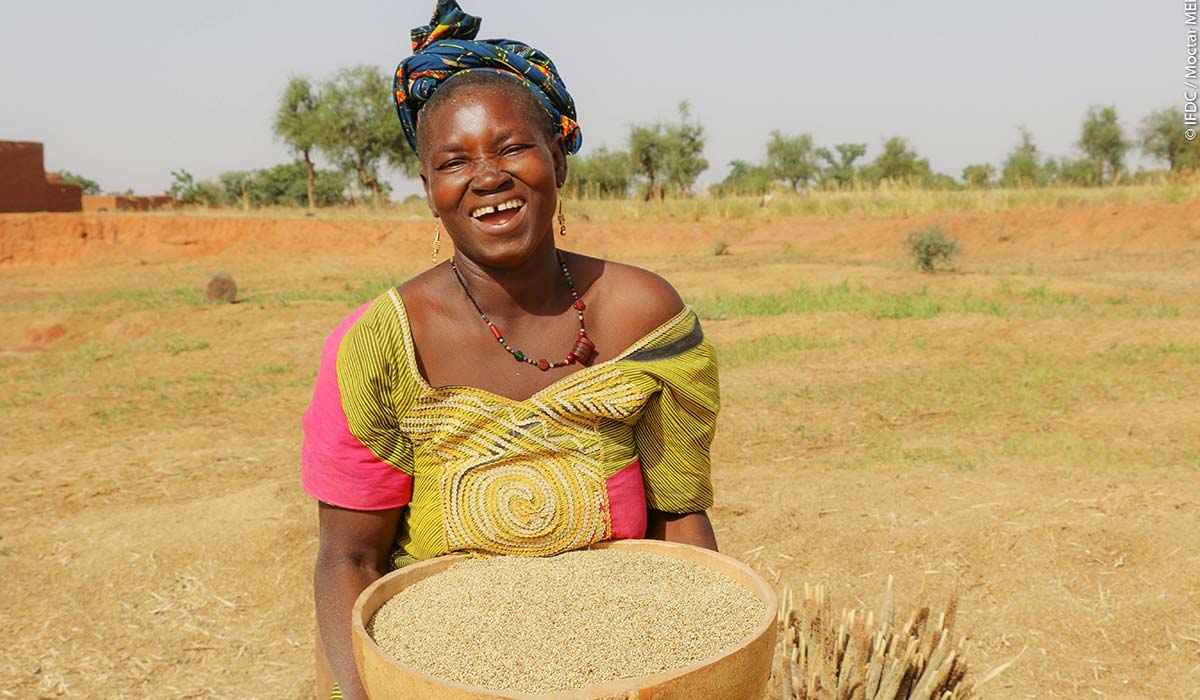Overview
The 2021 United Nations Food Systems Summit called for reorienting existing production-based agriculture toward a more globalized food systems approach – one that will be more productive, resilient, sustainable, and healthy: healthy soils, healthy plants, and healthier, wealthier people. COVID-19 has exposed the challenges and fragility of food systems in marginal geographies, and holistic solutions are required. Soil health and fertility are the basis for nutritious food production and resilient and sustainable livelihoods (Stewart et al, 2020).
The International Fertilizer Development Center (IFDC) brings together innovative research, market expertise, and strategic public and private sector partners to identify and scale sustainable solutions for soil and plant nutrition. IFDC has been implementing the U.S. Agency for International Development (USAID)-funded Bureau for Resilience and Food Security (RFS) grant on Feed the Future Sustainable Opportunities for Improving Livelihoods with Soils (SOILS) Consortium under a cooperative agreement mechanism with buy-in provisions. BRFS-SOILS is a pre-competed award, so there is no need for additional competitive procurement. USAID missions, offices, and bureaus can procure services rapidly and conveniently utilizing the BFS-SFT buy-in mechanism.

QUICK FACTS
Timeframe: 2019-2023
Donor: USAID/Bureau for Resilience and Food Security
Location: Global, responding to any USAID Mission needs
Partners: Kansas State University (KSU) – FtF Sustainable Intensification Innovation Lab (SIIL) and other U.S. universities, International (CGIAR, ISRIC – World Soil Information) and national level research partners, private firms, government extension agencies, and Mission implementing partners at the country level.
Total Funds: $3.69 M with a Mission buy-in ceiling of $50M
Goal
The SOILS agenda seeks to amplify several pathways to achieving the overall goal to Generate and promote practical, profitable, and scale-appropriate soil and land use management technologies and recommendations for healthier and productive farming systems globally.
Countries of Operation

BRFS-SOILS consortium activities are coordinated through IFDC Headquarters, based in Muscle Shoals, Alabama United States. Current field research activities are in Bangladesh, Burkina Faso, Ghana, Kenya, Ethiopia, Mozambique, Myanmar, Nepal, Niger, Nigeria, Rwanda, Uganda, and Zambia.
Priority Areas and Activities
1. Strengthened Inorganic fertilizer-based systems services
Improving nutrient use efficiency
- Fertilizer deep placement (e.g., urea and NPK deep placement)
- Improving the uptake of Phosphorous thru’ local resources (Phosphate Rock)
Targeted site/source fertilizer recommendations
- Incorporation of micro-nutrients into NPKs
- Facilitation of Soil-SMaRT
- Nutrient recycling
2. Integrated soil health and fertility management practices:
Sustainable soil intensification practices
- Integrated soil fertility management (ISFM) and conservation agriculture (CA) practices and technologies
- Improvements to decision-making tools for cropping system models for soil sustainability processes (e.g., DSSAT, Land Use Management (Land PKS)
3. Cross-Cutting Activities – Economics, Markets, and Data
- Optimal economic returns for soil technologies and practices
- Fertilizer cost build-ups, market margins in value chains
- Collaborative learning approaches, knowledge, and data management, Capacity building, workshops
Approach
Our goal is to link georeferenced crop trial responses to information on land- and soil-based characteristics to make site-specific hyper-localized fertilizer recommendations and solutions for balanced fertilization.
Soil testing, Mapping, Recommendation development and Transfer to farmers (SMaRT) is a step-by-step framework developed by IFDC to deliver balanced fertilizers to farmers. The SMaRT approach utilizesgeoreferenced field trials, consisting of baseline landscape, soils, crop, weather, management, and socioeconomics characteristics.
- The data from all site-specific field trials under SOILS will be complemented by decision support tools, such as the Land Potential Knowledge System (LandPKS; https://landpotential.org/mobile-app/) and iSDA SoilGrids maps, as well as ISRIC data and maps on hydrology to correlate land-soil-water and crop recommendations.
This will be subjected to multivariate analyses and modeling using the Optimizing Fertilizer Recommendations in Africa (OFRA; https://agronomy.unl.edu/OFRA) tool and the Decision Support System for Agrotechnology Transfer (DSSAT; https://dssat.net) for fine-tuning site-specific, hyper-localized fertilizer recommendations for balanced crop nutrition.


The SOILS Consortium is made possible by the generous support of the American people through the United States Agency for International Development (USAID).
Contact
Zachary Stewart
Jerry Glover

